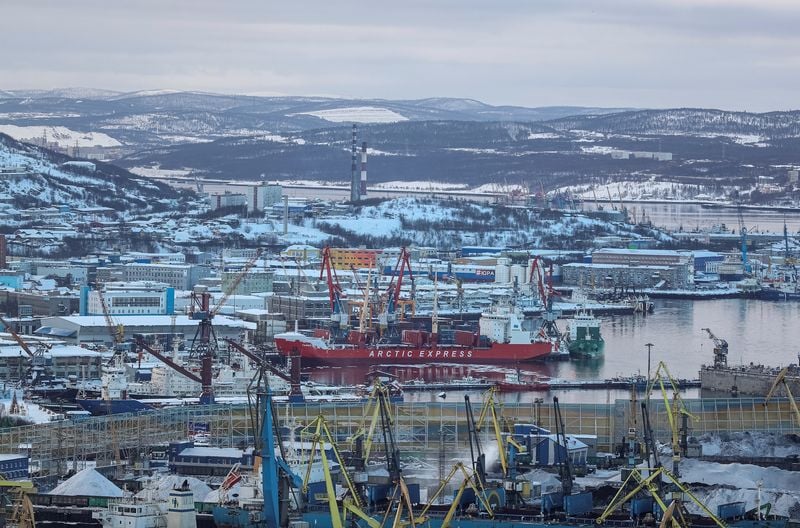MOSCOW (Reuters) – A Kremlin aide urged the Russian government on Thursday to adopt legislation allowing foreign flagged vessels to use the Northern Sea Route (NSR), which Moscow wants to turn into a new Suez Canal.
The NSR runs from Murmansk near Russia’s border with Norway eastwards to the Bering Strait near Alaska.
Although the route is physically challenging, it could cut sea transport times between Europe and Asia at a time when Russia’s trade with Western countries is at post-Cold War lows following Moscow’s decision to send troops into Ukraine.
“We have been left without transit routes. The Northern Sea Route is a new challenge to international logistics,” Igor Levitin, a former Russian transport minister and now an aide to President Vladimir Putin, told an economic forum.
By 2024, according to government plans, if projects involving liquefying natural gas, gas condensate, oil, coal, precious metals and other goods are implemented by Russian companies, cargoes totalling around 80 million tonnes per year could be shipped via the NSR between Europe and Asia.
Russia has been working on legislation to regulate use of the route by foreign commercial and military vessels.
“We have not (yet) set the rules for international transit traffic… The rules for the passage of foreign vessels should be adopted quickly,” Levitin said.
The NSR, though significantly shorter than the Suez Canal, is challenging and requires the assistance of icebreakers to help vessels to pass along the northern coast of Russia.
Sea ice around the North Pole covers the largest area at the end of the winter in March, and thaws to an annual minimum in September. The ice has shrunk in recent decades in a trend scientists have linked to man-made climate change.
(Reporting by Vladimir Soldatkin; Editing by Gareth Jones)
